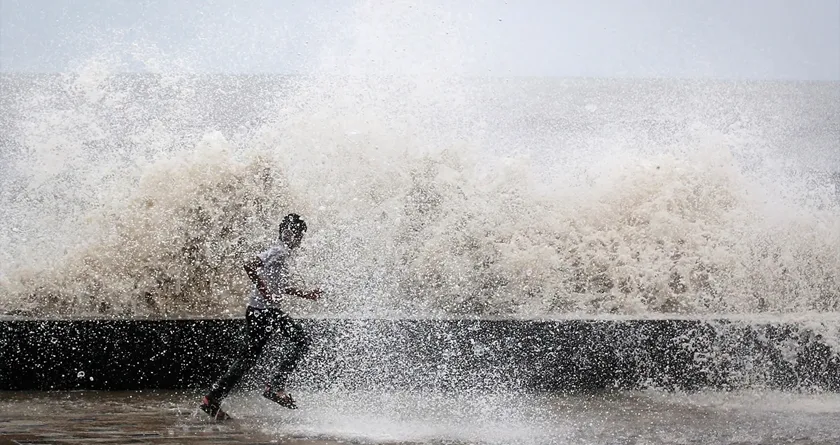
Global warming makes extreme coastal events more common, study finds
Global Warming. Know more…
Thursday, 9th September 2021
One study shows that due to global warming, it is currently estimated that by the end of this century an extreme coastal event will occur on average every 100 years.
This study, published in the journal Nature Climate Change, specifically studied extreme sea levels, abnormally high sea levels due to the combined effects of tides, waves, and storm surge.
Researchers predict that due to rising temperatures, extreme sea levels off global coasts will be 100 times more frequent by the end of this century in about half of the 7,283 locations studied.
Although there are uncertainties about the future climate, the researchers said the most likely path is that even if the global temperature increases by 1.5 or 2 degrees Celsius compared to the pre-industrial temperature, these increases in sea level will occur.
Scientists believe that these temperatures are the lower limits of possible global warming. They say that these changes may occur before the end of this century, and by 2070, extreme sea-level events in many places will increase by 100 times.
Claudia Tebaldi, a climate scientist at the US Department of Energy's Pacific Northwest National Laboratory, led an international research team to conduct analyzes.
Also Read: Land degradation in India hurts farmers and forest dwellers the most.
The research team found that the impact of sea-level rise on the frequency of extreme sea levels is most pronounced in tropical regions, generally at low latitudes compared to northern regions.
Areas that may be most affected include the southern hemisphere, the Mediterranean coast and the Arabian Peninsula, the southern half of the Pacific coast of North America and Hawaii, the Caribbean, the Philippines, and Indonesia. The researchers say that in many of these regions, sea-level rise is expected to be faster than in high latitudes. They said the least affected areas out of 4,444 include high latitudes, the northern Pacific coast of North America, and the Pacific coast of Asia. This new study reflects the claims of the 2019 Intergovernmental Panel on Climate Change report, which indicated that due to global warming, extreme sea-level events will become more common around the world by the end of this century.
"Even at 1.5 degrees, sea-level rise will be dramatic and will have a significant impact on the frequency and amplitude of extreme sea level. This is not great news," Tebaldi said. "This research provides a more complete global picture. We can observe a wider range of warming levels with very fine spatial details," he added.
Due to the uncertainty of the study author's detailed description, the best and worst-case scenarios presented by the study are different. In one case, under a pessimistic situation, by 2100, with a temperature increase of 1.5 degrees Celsius, 99% of the research sites will experience a 100-fold increase in extreme events.
In another optimistic situation, even if the temperature increases by 5 degrees Celsius, about 70% of the locations will not see much change.
The News Talkie Bureau
Source:
IndiaToday











